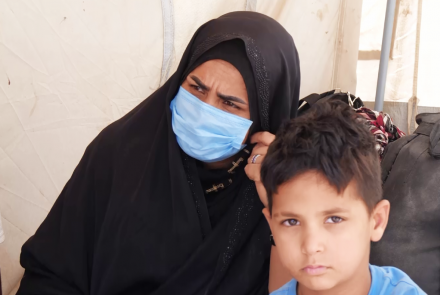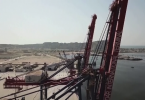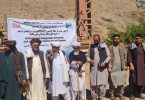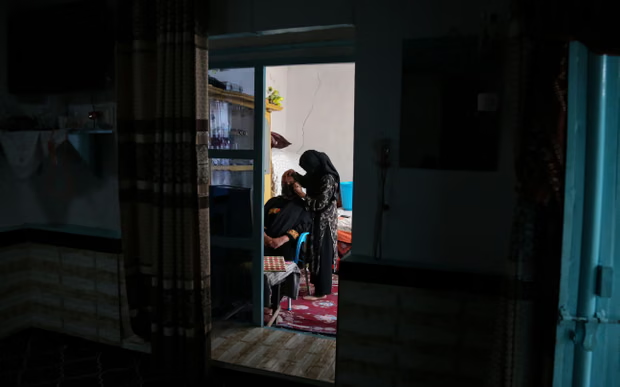KABUL (TOLONews): The forced return of Afghan migrants from neighboring countries has always faced serious challenges. However, the difficulties are even greater for families who were born and raised in migration.
These families have left behind everything they built in life and returned to Afghanistan with completely empty hands.
Sakina and her children are one example. For the first time, this mother and her children are breathing the air of their homeland. Sakina was born in Iran and has returned to Afghanistan for the first time in 38 years.
Sakina told TOLOnews: “I was born in Iran. I came from Iran, but we don’t have any place, no house or land in our homeland. We arrived here this morning, have no food, and are sitting in this dirty place.”
Meanwhile, the World Health Organization (WHO) reports that from April 10 of this year until now, 836,713 people have returned to Afghanistan from Iran and Pakistan. The most common illnesses among them include respiratory infections, acute diarrhea, and suspected cases of COVID-19.
The WHO stated: “WHO has remained fully engaged in delivering essential health services at POEs and reception centers. During the reporting period, the team provided support for surveillance, routine and polio immunization, outpatient consultations, and trauma care. The most commonly reported health conditions among returnees included respiratory tract infections (RTIs), acute watery diarrhea (AWD), suspected COVID-19, and scabies.”
On another front, Stéphane Dujarric, spokesperson for the UN Secretary-General, said in a press briefing that these Afghan migrants are being returned to a country already facing a “crisis.”
Mr. Dujarric told reporters: “I mean I think our our colleagues at UNHCR have been very vocal in pointing out the the very real human challenges, right? the fact that we’ve had some refugees deported back to a country that can barely absorb them where they may not have the the resources to survive and where the rights of many including women and girls continue to be violated.”
Amanullah, another deportee from Iran, told TOLOnews: “We went to Iran voluntarily and faced days like this. Iran pressured us and told us to leave.”
According to statistics provided by the World Health Organization, it is estimated that this year up to 1.6 million people may return from Pakistan and up to 2 million from Iran.







